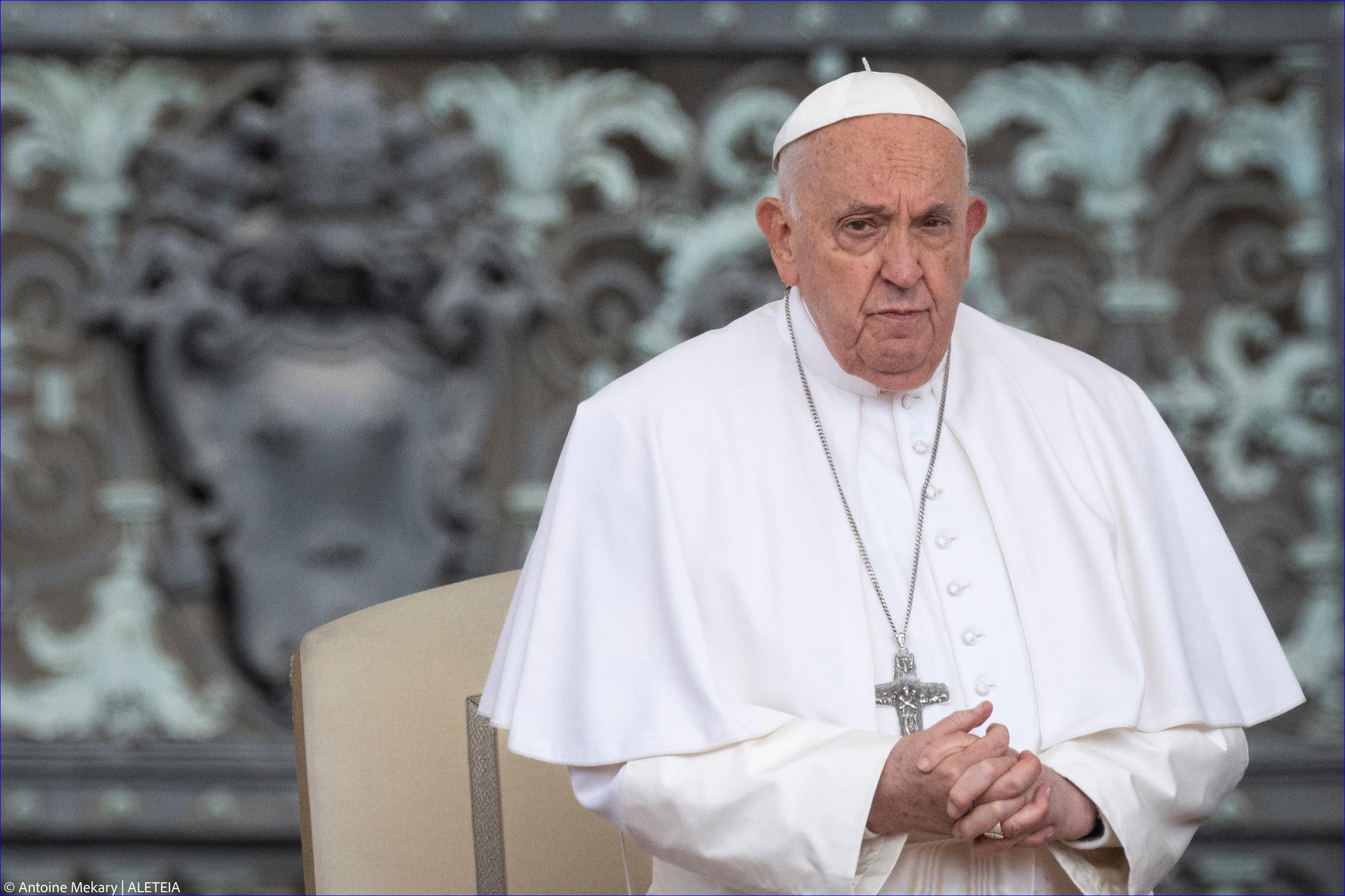


The issue: Priests want to face the people
The long history of the Syro-Malabar Church is linked to that of the Chaldean Church, which is present mostly in Iraq today. Like the Chaldean Church, it underwent Nestorian influences before undergoing a Latinization of its rite from 1599, in order to draw closer to Rome.
In the 1970s, following the Second Vatican Council's call for the Eastern Churches to return to their ancient traditions as a bridge to the Orthodox, the 35 dioceses of the Syro-Malabar Church were invited to discontinue their Latinization and return to the Chaldean rite.
But while the more traditionalist -- and therefore more Chaldean -- southern province is returning to the strong tradition of its origins, the more Latinized northern province is resisting.
The latter prefers to follow the Latin Church, which has instituted Mass celebrated while facing the faithful, while the south, encouraged by Vatican II, celebrates with its back to the faithful, according to the Chaldean rite.
Addressing the group, the Pope praised the fidelity to Rome of the Syro-Malabar Church.
This ancient Catholic community numbers 5.5 million faithful, most of them in Kerala, India. Its foundation is said to date back to the Apostle St. Thomas. "You are obedient, and where obedience is present, there is the Church. Where there is disobedience, there is schism," declared the Pope, before insisting that "apart from Peter, apart from the major archbishop, there is no Church."
The 266th Pope then openly referred to the liturgical conflict involving 400 priests from Ernakulam-Angamaly -- the Church's largest diocese -- who refuse to comply with a liturgical reform approved by vote of their Synod back in 1999. The reform
Against a backdrop of protests, Rome has sent several administrators and apostolic delegates to the area, without success.
"Remain in the Catholic Church!"
Last December, with the resignation of Cardinal George Alencherry -- who had been at the head of this Church since 2011 -- Pope Francis sent an unprecedented video in which he threatened dissident pastors with excommunication on December 25 if they didn't implement the new "unified" Mass, which is partly celebrated with the priest facing the altar with his back to the people.
"Re-establish communion, remain in the Catholic Church!" the Pontiff implored, warning them against the risk of becoming "a sect."
Now, he warned them again "of the dangerous temptation to focus on one detail, and an unwillingness to let it go, even to the detriment of the good of the Church."
"Showing a grave lack of respect for the Blessed Sacrament [...] by arguing about the details of how to celebrate the Eucharist [...] is incompatible with the Christian faith," he said.
Although the liturgy was respected throughout the diocese on Christmas Day, tensions remain high, as some of the faithful continue to voice their opposition. At the end of 2023, some Vatican officials warned that the specter of excommunication was "very real."
The Pope's appeal to recalcitrant priests
At the audience, the Pope saw in this crisis a tendency towards "self-referentiality," which he translated into a Spanish expression: "I, me, with me, for me, everything for me."
"It is here that the devil, the divider, who truly exists, creeps in," he warned, asserting that "guarding unity is not a pious exhortation but a duty." And he added: "It is especially so when it concerns priests who have promised obedience."
Turning to the new head of the Church, Archbishop Raphael Thattil, elected on January 9, the Argentine Pontiff urged him to "leave the doors open and our hearts open" to those refractory priests who could return "once they have repented."
"We are waiting for them," said the Pope. He invited all to "pray tirelessly that our brothers and sisters, tempted by a worldliness that leads to rigidity and division, may realize that they are part of a larger family that loves them and waits for them."
The Pope also said that he had given the major archbishop, whom he met privately before the audience, jurisdiction over the faithful of the Syro-Malabar Church who have emigrated to the Middle East. Many of them work in the Persian Gulf.
In his address, Francis also underlined the "special heritage" of this particular Church, rejoicing that the state of Kerala is "a treasure-trove of vocations."
"I am close to you in prayer and carry you in my heart every day," he said. He urged those present not to allow themselves to be overwhelmed by "a sense of helplessness in the face of problems," nor to shut themselves away in "prejudices," but to "respond to evil with good."
A conflict that has dragged on for decades
In 1999, the Syro-Malabar Synod -- the assembly of this autonomous Church -- reached agreement on a liturgical compromise, with one part of the liturgy facing the congregation and another with its back to the congregation.
But the eparchy -- equivalent to a diocese -- of Ernakulam-Angamly, with its great vitality and 655,000 faithful, continues to resist. Yet traditionally, the head of this northern diocese is also the head of the 5.5 million-strong Church, giving even more weight to the dissension: a dissension that experts see as a rejection of Rome's authority.

or register to post a comment.